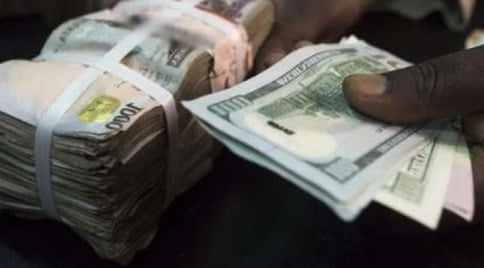Nigeria’s Naira is holding its ground, a surprising show of strength in a typically volatile market. This isn’t just luck. A mix of rising foreign reserves, smart CBN policy, and growing investor confidence is keeping the currency steady. Let’s break down what’s really going on with the dollar to naira exchange rate and the fundamentals supporting it.
Contents
CBN FX Rate: The Real Story in the Numbers
The official spot FX rate closed at N1533.74 per dollar on Friday, August 1, a minor dip from the day before. For anyone tracking the live numbers, the CBN exchange rate dollar to naira today offers the latest snapshot, but the real story is in the details of Friday’s trading. The closing rate was also the day’s high, which points to a balanced market, not one under stress from huge demand.
Meanwhile, the parallel market tells an even better story. The naira actually gained strength there, trading at N1,540 per dollar. The fact that the official and parallel rates are so close is a huge deal. It means less room for speculation and shows that the CBN’s official rate is better reflecting the true market sentiment—a sign that recent reforms are working.
The Foundation: Billions in Foreign Reserves
The real backbone of the naira’s strength is Nigeria’s growing pile of external reserves. Citing the latest figures released by the CBN, the reserves have now grown for four straight weeks, adding $593.75 million in the last week alone to reach $39.36 billion.
With more reserves, the CBN has the ammunition to step into the market to smooth out rough patches and defend the currency’s value. It’s a clear signal to investors, both at home and abroad, that the system has a shock absorber. This confidence is essential for attracting the capital that keeps the CBN FX rate stable.
Attracting Dollars with Smart Policy
This flood of reserves isn’t a random event. It’s the direct result of a savvy CBN strategy to pull in Foreign Portfolio Investors (FPIs). Investment firms like Cordros Capital are optimistic, expecting FX liquidity to stay strong.
The CBN’s main tool has been offering high returns on its Open Market Operations (OMO) bills. These attractive yields have become a magnet for foreign capital. This influx does two things at once: it pumps more dollars into the system, easing pressure on the naira, and it acts as a huge vote of confidence in Nigeria’s economy. That confidence, in turn, encourages local investors to stick with the naira instead of betting on the dollar.
Holding Strong Despite Global Headwinds
What makes the naira’s stability so impressive is that it’s happening while the global economy is shaky. Nigeria’s fortunes are often tied to crude, but global oil prices have recently dipped, with Brent crude at $71.68 and WTI at $69.18.
At the same time, geopolitical jitters over trade tariffs have sent investors running to safe-haven assets like gold, which jumped in price. Normally, that one-two punch of lower oil prices and global anxiety would weaken the naira. But not this time. The currency’s ability to shrug this off shows it’s no longer just an oil story. A more diversified and well-managed FX market is proving its resilience.
Outlook: The Path Forward
So what’s next for the naira? The outlook is positive. The factors driving this stability don’t seem to be going away. As long as the CBN keeps its policies attractive and investors remain confident, the flow of foreign currency should continue to support the dollar to naira rate.
The challenge now is consistency. The market has rewarded the CBN’s clear strategy. Sticking with it will be vital. Global shocks will always be a risk, but with strong reserves and smarter FX management, the naira is in its best shape in recent memory. The real work begins now: turning this stability into widespread economic growth.










